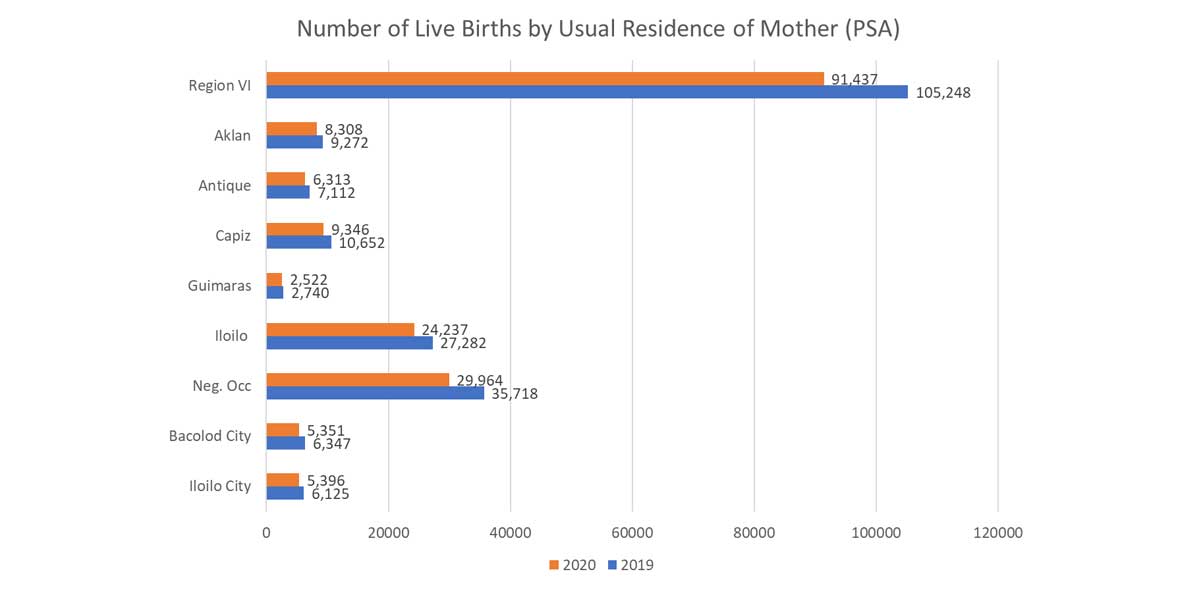
Lockdowns imposed due to the COVID-19 pandemic were expected to increase the population as couples stayed at home for the most part of 2020.
But that was not the case, based on data from the Commission on Population and Development (POPCOM) which noted a decrease in the number of registered births in the Philippines last year.
At the national level, registered births numbered to 1,516,042, which is 158,260 lower (9.45 percent) compared to 1,674,302 in 2019.
This is the lowest recorded registered number of births since 1986, when 1,493,995 Filipinos were already born based on a preliminary report of the Philippine Statistics Authority (PSA) in June 2021.
A similar trend was observed in Western Visayas. In 2020, the number of registered births was 91,437 compared to 105,248 in 2019, a decrease of 13, 811 (13.12 percent).
Among the provinces and highly urbanized cities (HUCs) in the region that posted the highest decrease in the registered number of births were Negros Occidental (16.11 percent), Bacolod City (15.69), and Capiz (12.26).
Guimaras (7.95), Aklan (10.39), and Iloilo City (11.9) logged the lowest drops.
POPCOM cited several factors associated with the decrease in the number of registered births in 2020:
1) fewer marriages due to limited face-to-face gatherings,
2) women delaying pregnancies due to pandemic,
3) increased number of women using family planning methods, and
4) delayed registration of births due to limited movement of people.
“It is indeed good news for every Filipino that the expected increase in births in 2020 did not happen. The anticipated increase in births was based on the premise that couples would have more time together in their homes due to lockdowns. On the contrary, they became cautious on matters relating to fertility decisions and more aware of their reproductive and informed choices,” POPCOM-Western Visayas Regional Director Harold Marshall said.
Marshall said the advance anticipation of the disruption in the access of family planning services due to the limited movement of the people during COVID-19 restrictions “prompted health agencies, development partners, and local government units (LGUs) to plan for proactive action and develop strategies to continuously provide social and family planning services to couples and individuals especially to those who have an unmet need for modern family planning.”
This was made possible through the mobilization and active support of the population volunteers and health workers in the region, he added.
CONCERN
According to the Social Weather Station’s November 2020 survey, unintended or unplanned pregnancies were among the major concerns of most Filipino women during the pandemic.
They were also anxious about COVID-19’s ill-effects on their well-being as well as their families, their unborn child, and the country’s overall condition.
“With this, POPCOM will continue its effort in advocating and disseminating responsible parenthood and reproductive health-related information and services and generate demand for family planning,” the agency said.
These aim to help couples and individuals to avoid untimely and unplanned pregnancies. In addition, initiatives on special protection programs for teenage mother and their children and reduction of teenage pregnancy shall be scaled-up and intensified.


















